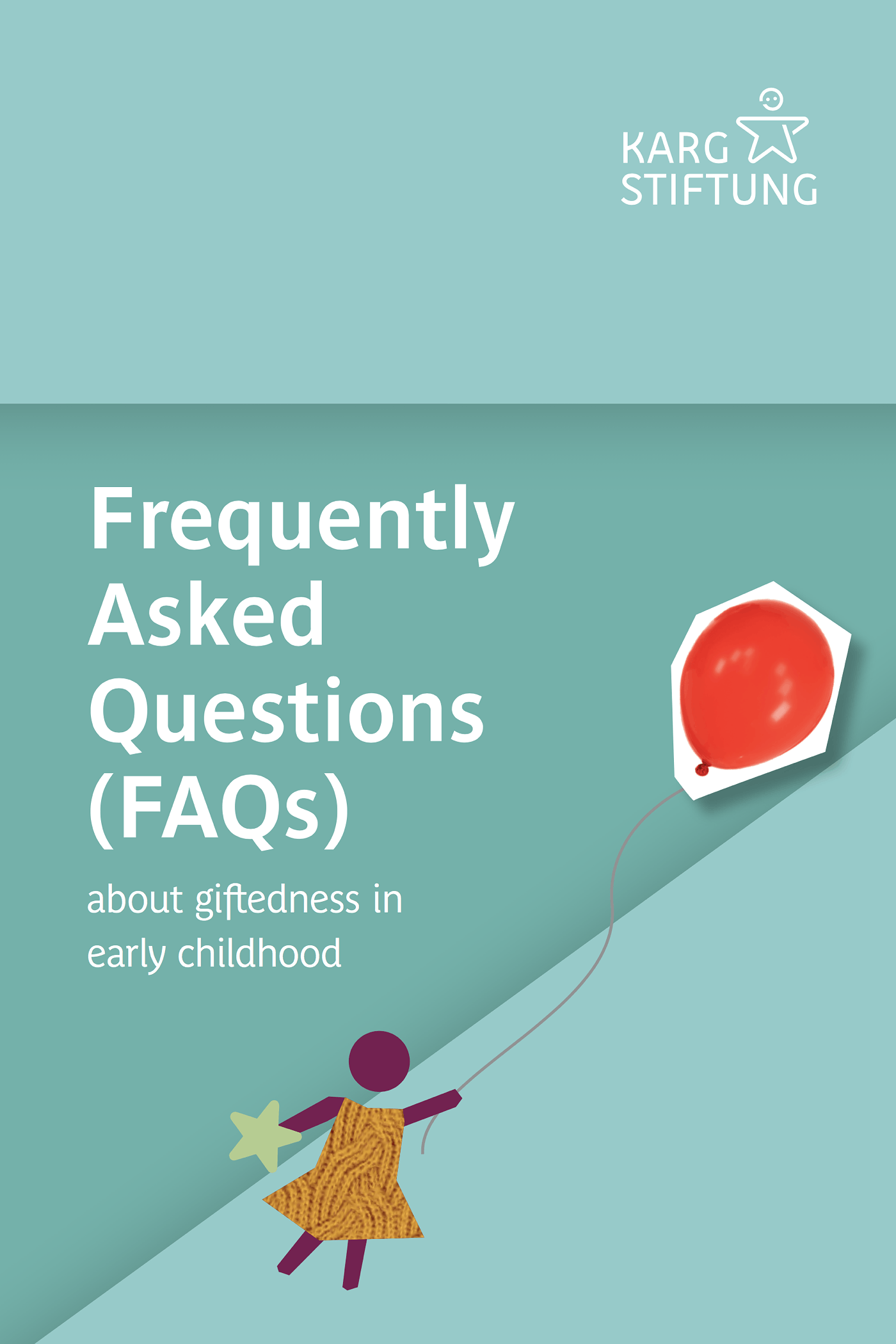Frequently Asked Questions (FAQs) about giftedness in early childhood
What to do with a child who has already begun to read or do math even before starting school?
There should be no limitations placed on children’s curiosity and eagerness to learn. If children are motivated to learn about reading, writing, numbers, or arithmetic, they should not be discouraged to do so. Rather, educators and parents should provide appropriate support to encourage the child’s curiosity. Of course, this does not mean that the child should be taught reading or arithmetic in a systematic way. Nevertheless, the child’s learning needs should be addressed and relevant learning materials (e.g., Montessori materials, books for beginning readers, alphabet boards) or learning opportunities should be offered.
During the transition from the Kita to elementary school, specific attention must be focused on the level of a child’s acquired basic cultural tools (i.e., the competences by which children can participate in a culture that help them to organize the world in which they live). The parents, Kitas, and elementary schools should be aware of and carefully assess the child’s individual learning level in terms of the demands of school to prevent long-term underachievement from the very beginning of the child’s school career. The underlying principle is that children’s learning should not primarily be adapted to the limitations of the educational system, but that learning opportunities should be provided to match the child’s abilities. Consequently, if a child enrolled in school already possesses skills in reading, writing, or arithmetic, then the school is also responsible for ensuring that the child receives the appropriate continued support.

